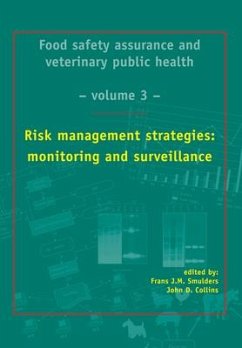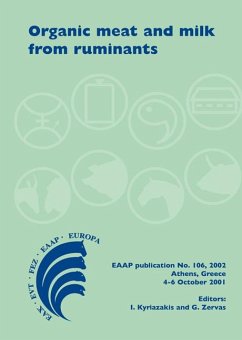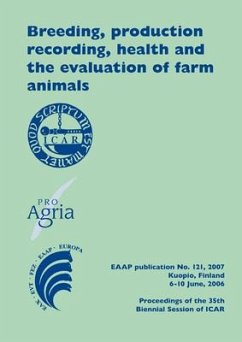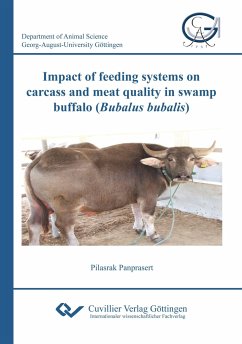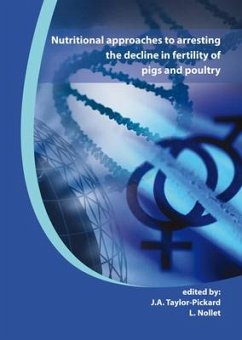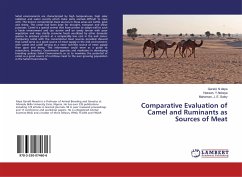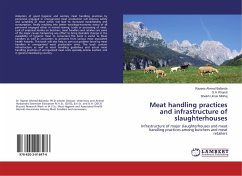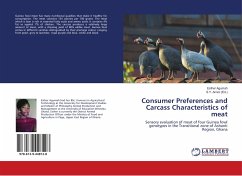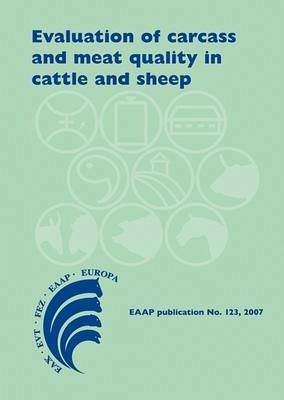
Evaluation of carcass and meat quality in ruminants
Versandkostenfrei!
Versandfertig in über 4 Wochen
124,99 €
inkl. MwSt.

PAYBACK Punkte
62 °P sammeln!
"Livestock production systems will only be sustained in the long term if their products continue to meet the demand of consumers. The quality of ruminant carcasses, meat and meat products is of predominant importance in a competitive market where consumers tend to have a preconceived idea about the criteria that define meat quality such as flavour, tenderness, juiciness, smell, colour and texture. The carcass evaluation could be interesting as a precocious classification of the final quality of meat coming from each carcass. Today the quality characteristics of the meat must be different accor...
"Livestock production systems will only be sustained in the long term if their products continue to meet the demand of consumers. The quality of ruminant carcasses, meat and meat products is of predominant importance in a competitive market where consumers tend to have a preconceived idea about the criteria that define meat quality such as flavour, tenderness, juiciness, smell, colour and texture. The carcass evaluation could be interesting as a precocious classification of the final quality of meat coming from each carcass. Today the quality characteristics of the meat must be different according to its utilisation (supermarket, butcher, catering, refectory, etc.) and so it is very important to choose very early the final destination of the carcass. Obviously, the carcass classification must correlate with meat quality characteristics required by final consumer. Other important factors that have to be taken into account in order to maintain a demand for ruminant meat are safety and traceability.This book reviews the historical and recent developments for carcass evaluation and grading for meat quality assessment in beef and sheep. It places special emphasis on new concepts and approaches to define carcass and meat quality and on the use of modern technologies for composition and quality evaluation. A range of technologies are presented such as ultrasounds and colour reflectance, X-ray computerised tomography, spectral and thermal imaging, image analysis and NIRS. The use of phenotypic markers such as the plasma hormones and genetic markers to predict carcass composition and meat quality are also presented."



